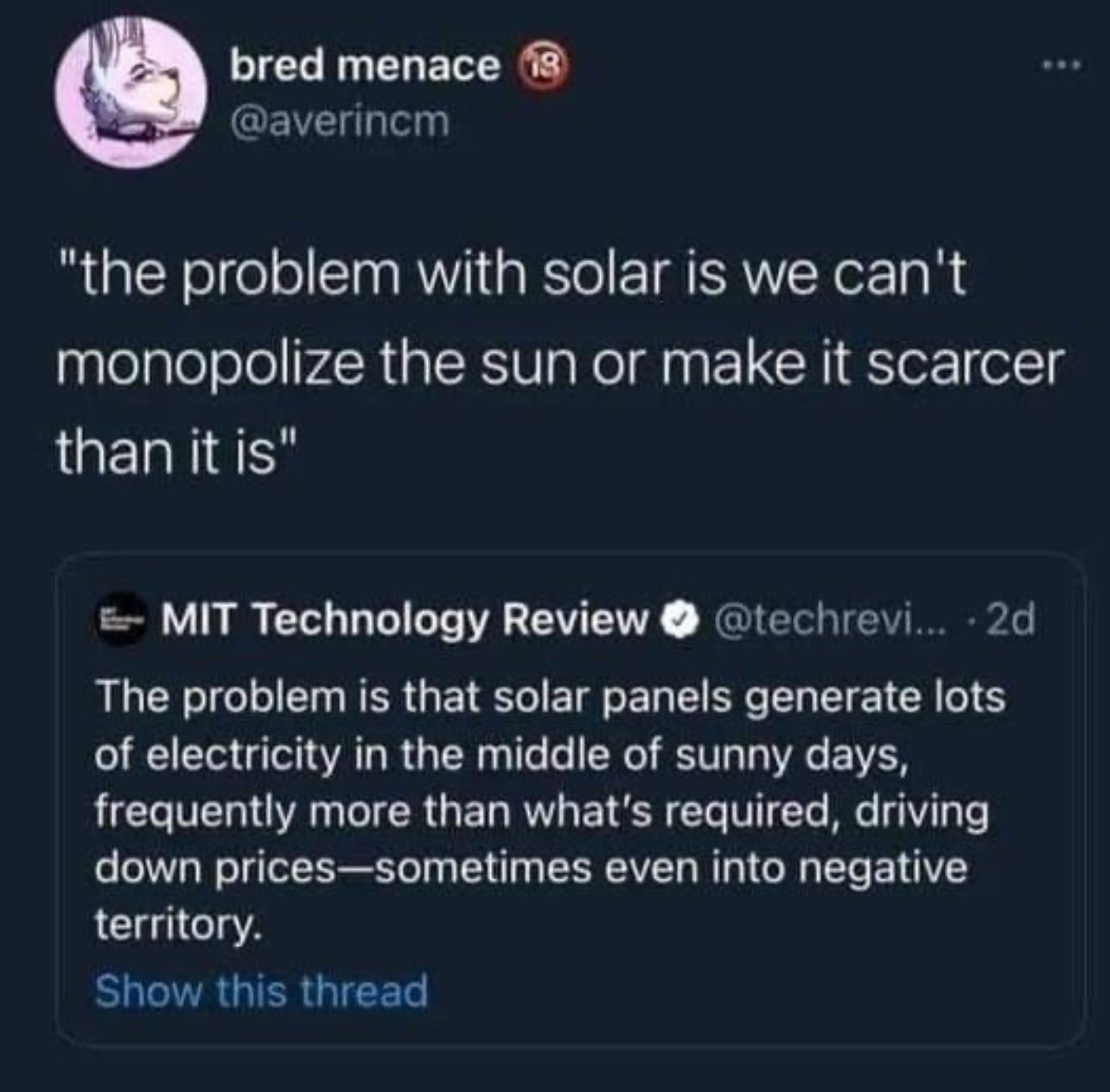this post was submitted on 02 Oct 2024
1701 points (95.6% liked)
Microblog Memes
7466 readers
1507 users here now
A place to share screenshots of Microblog posts, whether from Mastodon, tumblr, ~~Twitter~~ X, KBin, Threads or elsewhere.
Created as an evolution of White People Twitter and other tweet-capture subreddits.
Rules:
- Please put at least one word relevant to the post in the post title.
- Be nice.
- No advertising, brand promotion or guerilla marketing.
- Posters are encouraged to link to the toot or tweet etc in the description of posts.
Related communities:
founded 2 years ago
MODERATORS
you are viewing a single comment's thread
view the rest of the comments
view the rest of the comments

That's not at all what MIT is talking about here. This goes into detail around the challenges tied in rolling out grid scale solar in a way that aligns with supply and demand curves, and how to make sure we're able to capture overproduction so that we can use it when not enough is being produced. It's a complex shift to work out in our over 100+ year grid production structure, and has been an ongoing discussion across the energy sector. But you know...memes and shit.
You're not saying anything contradictory to the criticism, You're saying the exact same shit with a more expensive vocabulary. I'm also very educated. I also agree the sun is Monty Burns greatest enemy for giving out free light.
Clearly not. The point is that grid scale deployment is not easy. It's an important discussion to do it right. The criticism is genuinely stupid and just spotlights people who clearly don't understand how any of this stuff works or what the article is even talking about. You can't just slap solar panels everywhere and call it a day.
Grid scale redundancies are important. Managing load is important. Energy storage is important. Scaling up renewables and scaling down conventional generation is important. Ensuring those who cannot afford their own BTM generation can access affordable electricity is important. That's entirely what this conversation is about.